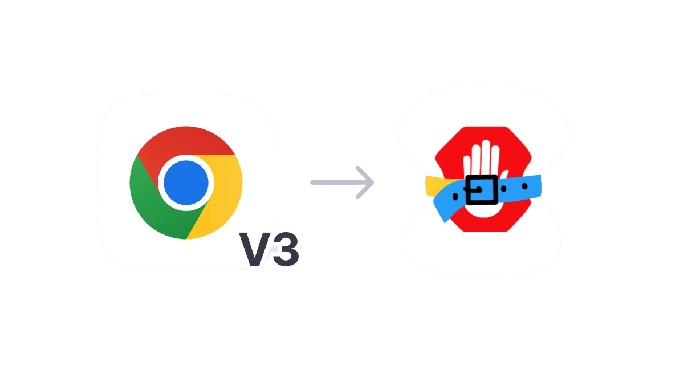

Get ready to dive into the exciting realm of Google Manifest v3 – the latest evolution in the world of browser extensions that promises a significant impact on security measures. As developers and end users brace themselves for changes, let’s explore what this new version entails and how it will revolutionize the landscape of online extension usage.
Let’s uncover the potential security concerns and discover how Google is stepping up to address them head-on. Join us on this insightful journey to understand how Manifest v3 is set to shape a safer browsing experience for all!
What changes will be implemented in v3?
Google Manifest v3 is set to bring significant changes to the way Chrome extensions operate. One of the key modifications is the introduction of declarativeNetRequest, replacing the powerful but complex webRequest API. This change aims to enhance performance and security by limiting what information extensions can access from users’ browsing activities.
Moreover, Manifest v3 will enforce stricter rules on extension permissions, requiring developers to justify why their extensions need certain capabilities. This move intends to reduce potential privacy risks and ensure that user data is handled more responsibly by extensions in the Chrome ecosystem.
Additionally, background pages in Manifest v3 will be replaced with service workers, enabling better resource management and improving overall browser efficiency. By streamlining how extensions interact with web content, Google aims to create a more secure browsing experience for users while maintaining extension functionality at a high level.
Impact on Extension Developers
Developers will need to stay informed about Google’s updates and guidelines regarding Manifest v3 to ensure their extensions remain compliant. The transition may involve rewriting code, improving performance, and enhancing user experience within the parameters set by Google. Additionally, there might be a learning curve for developers unfamiliar with these changes, requiring time and resources for upskilling.
Adaptation is key for extension developers in navigating through the implications of Manifest v3 effectively. By embracing these modifications proactively, developers can continue providing valuable tools while adhering to Google’s evolving standards.
Impact on End Users
As Google rolls out the Manifest v3 update, end users can expect to see significant changes in how their Chrome extensions operate. With a focus on enhancing security and performance, these updates will impact how users interact with their favorite browser add-ons.
One key change that end users may notice is a potential reduction in the functionality of certain extensions. Manifest v3’s emphasis on limiting access to sensitive user data means that some extensions may require additional permissions or could be restricted from performing certain actions.
Additionally, users might experience improvements in overall browsing speed and efficiency as manifest v3 aims to streamline extension processes and reduce resource usage. This could lead to a smoother browsing experience for those who heavily rely on multiple extensions simultaneously.
While there may be initial adjustments required by both developers and end users, the long-term benefits of enhanced security and optimized performance are expected to outweigh any temporary inconveniences caused by the implementation of Manifest v3.
Potential Security Concerns
Another concern is related to user privacy and data security. With stricter permissions in place, users may face challenges with certain extensions not being able to access necessary information securely. This could potentially lead to vulnerabilities and risks associated with unauthorized access or data breaches.
Moreover, there are worries about how these changes will impact existing extensions and their ability to adapt to the new framework seamlessly without compromising security measures. Developers will need to ensure their extensions comply with the updated guidelines while also maintaining a high level of security for end users.
As Google continues its efforts to enhance browser security through Manifest v3, it is crucial for developers and users alike to stay informed and vigilant about potential risks that may arise from these changes.
Steps taken by Google to address security issues
Google has been proactive in addressing security concerns with the upcoming Manifest v3. One significant step taken by Google is the implementation of a more robust permission system for extensions. This will ensure that users have more control over what data and functionalities extensions can access.
Additionally, Google has introduced stricter rules regarding extension capabilities to prevent malicious activities. By limiting the ability of extensions to manipulate web pages, Google aims to enhance user privacy and security while browsing online.
Furthermore, Google has emphasized the importance of developers following best practices when designing their extensions. By providing clear guidelines and resources, Google helps developers create secure and trustworthy extensions for users to enjoy without compromising their safety.
These steps taken by Google demonstrate a commitment to improving the security landscape of Chrome extensions with Manifest v3.
Conclusion
Google Manifest v3 brings significant changes to the way extensions function in Chrome. While these modifications may impact both developers and end users, they are primarily aimed at enhancing security and user privacy.
By restricting certain capabilities of extensions and promoting better development practices, Google is working towards creating a more secure browsing experience for everyone. It will be crucial for extension developers to adapt to these changes and prioritize security in their creations to ensure compliance with Manifest v3 guidelines.
The implementation of Manifest v3 underscores Google’s commitment to safeguarding users against potential security threats while using Chrome extensions.